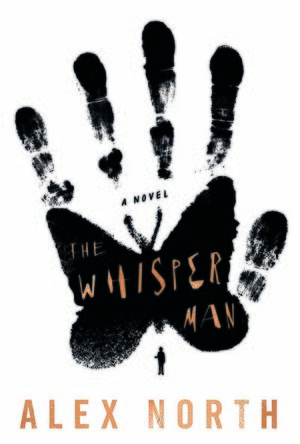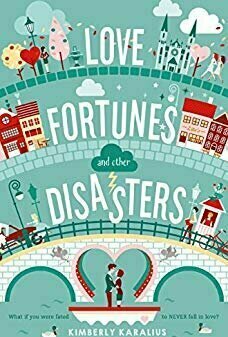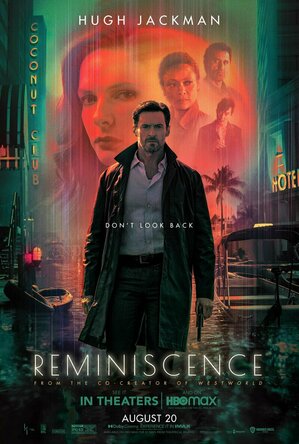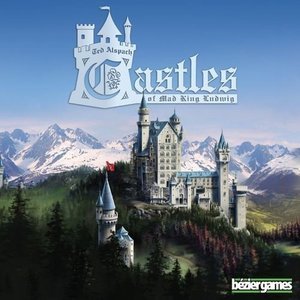
Wedding Paperie: Wedding Invitations & Cards
Shopping and Photo & Video
App
Wedding Paperie for iOS makes it easy to create and order personalized, one-of-a-kind wedding...
BookInspector (124 KP) rated The Whisper Man in Books
Sep 24, 2020
I really enjoyed this book and the story. The characters chosen for this novel are quite ordinary, but at the same time incredibly mysterious. I really enjoy reading multiple perspectives, and especially when the murderer’s thoughts are incorporated as well, and this book didn’t disappoint me with that. I really liked how the author delivered the characters, he concentrated on the important ones, and I was able to find out more about them. My favourite character has to be Jake, he is smart, sweet, interesting, and he truly shines in this book. I really enjoyed the variety of characters as well.
The narrative of this novel is very creatively crafted, it has plenty of twists and surprises, and I really liked the way Alex North was building up the suspense throughout this novel. This book had not only chills and thrills, but also some very deep and insightful monologues as well. The characters discussed such topics as loss and how they are dealing with it, how fathers influence their sons, alcoholism and it’s consequences, single parent struggles, and many more. Even though there are female characters in this novel, the author concentrates more on Father-Son bond and relationships, and it feels quite masculine at times, and I really liked reading about it.
I enjoyed the writing style of this book, the book was very well composed and delivered. The chapters are short, so it was very hard to put it down. There are some very disturbing scenes in this book related to dead seven-year-old children, so it is not for faint-hearted readers. Even though this story is very gripping, I was expecting something more from the culmination, it was good, but it could’ve been even better. I liked how this book ended, I think it rounded the story very nicely. There is not much information about the author himself, but I believe it was his debut novel, and I truly hope that there will be more coming in the near future. 🙂
So, to conclude, it was a true page turner for me, that left me scared at night. I loved the complex characters, unexpected discoveries, and always lingering fear and creepiness. I thoroughly enjoyed this book, and I strongly recommend it to all mystery and thriller fans. There are rumours that there will be a film, and I absolutely can’t wait to see, how it will be adapted to the big screen.
Kara Skinner (332 KP) rated Love Fortunes and Other Disasters (Grimbaud, #1) in Books
Sep 10, 2019
For Fallon Dupree, a spinster fortune is just another reason that she’s an outcast in Grimbaud High School. With her parents and brother all strict inspectors in the clothing and restaurant department, Fallon leads a high quality life that quickly gets her branded as a snob. Not ready to give up on love quite yet, Fallon joins a rebellion to overthrow Zita’s charm shop and take back their own fortunes. Much to her surprise, so does her next door neighbor, Sebastion, who is also the high school’s heartbreaker.
Okay, if you’re following me on Twitter, then you already know I like this book. It’s adorable and sweet. I am a bit of a sucker for modern fairy tale towns like Grimbaud is. Fallon is a really good character, even though I don’t really like her parents. I mean really, controlling much? Her brother is pretty cool, though.
I actually like Sebastion’s character. Player love interests can either be complete jerks or be really hot, and Sebastion is definitely hot. Unlike the love interest in The Boy Next Door, the teen romance I’m reading now, Sebastion isn’t a complete douche to girls, even though he does date around. He is really funny and I like the chemistry between him and Fallon a lot.
What I didn’t like about this book was how a lot of them just gave up. I mean, if I was in the Spinster Villa, I would be over at the Bachelor Villa all the time. Even if it wasn’t true love, it would be nice to have a fling, right? They are all lonely. I can’t see the villas staying segregated because of a piece of ticker tape they got a few decades ago, even if the fortunes always come true. Worst case scenario there’s always friendship, right? And some of those love fortunes definitely didn’t have a life sentence. You will get a terrible rejection in the near future? That could have been my fortune in the sixth grade. Now I’m dating an incredibly sweet guy who loves me and is adorable and sexy. Too much of this town gave up way too quickly. At least Ms. Ward tried.
I still give this book four out of five stars. Romantics out there will definitely enjoy it, and every teenaged girl feeling unlucky in love should read it.

V LIVE - Broadcasting App
Entertainment
App
"V" is an app that lets you watch the personal broadcasting videos of celebs on your phone. You can...
Bob Mann (459 KP) rated Reminiscence (2021) in Movies
Aug 24, 2021
Positives:
- The special effects showing a submerged Miami are impressive enough.
- I enjoyed the soundtrack by "Westworld" and "Game of Thrones" composer Ramin Djawadi.
Negatives:
- The script is dreadful. Hugh Jackman's does a voiceover.... and regular readers of mine will know my feelings about those!!! Here he drones on incessantly about things like "memories being beads on time's necklace". Outside of the voiceover, the dialogue generally doesn't sound remotely like things that people would say to each other. There are some cringe-inducing segments of speechifying. That's when you can actually understand what's being said: I found the sound mix makes that really difficult with some of the lines.
- This seemed to me to be reflected in the performances of Jackman, Ferguson and Newton. Star-power indeed, but it appeared to me that they didn't have confidence in the words. Fans of the trio will, I think, be disappointed. (And I am a big fan of Rebecca Ferguson. She is again gorgeous here and - unlike in "The Greatest Showman" - actually gets to sing).
Summary Thoughts on "Reminiscence": This film is a big disappointment to me. When I first saw the trailer, I went "YES, YES, YES!!". It looked like an interesting post-apocalyptic sci-fi with perhaps elements of "Inception", "Waterworld" and "Flatliners" thrown in. Jackman even gets to tussle with sheets on a rooftop again! (Was anyone else playing "A Million Dreams" in their head?). But then came the film itself. The result was that about two-thirds in I was really willing it to end. (On principle, I don't walk out of movies). To be fair, the story did pick up slightly towards the conclusion, so I could quietly put my 1* rating away.
I really feel sorry for writer/director Lisa Joy for writing such a negative review. The executive producer of "Westworld" (who's also written and directed some episodes) had secured Jackman and brought some of her "Westworld" talent with her. I'm sure she put her heart and soul into this as her directorial feature debut. But I'm afraid it just did nothing for me and - given the talent available - came across as a wasted opportunity.
(For the full graphical review, please check out onemannsmovies on the web, Facebook and Tiktok. Thanks.)

Pocket Sergeant - UK Police Guide
Reference and Productivity
App
The award-winning app for police officers, police staff, detention officers, PCSOs, law students,...
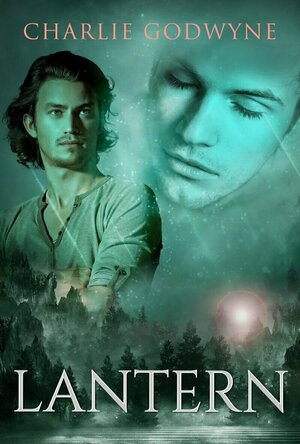
Lantern (Danubian #1)
Book
In the black night, I alone uphold the shrine of the seven lantern gods. The year is 2448....
MM Paranormal Romance
Bob Mann (459 KP) rated Ad Astra (2019) in Movies
Sep 28, 2021
I really love sci-fi films with high ambitions. “Psychological” sci-fi like “Solaris” for example. And “Arrival” topped my movie list for 2016. In similar vein, “Ad Astra” is also a movie concerning attempted contact with alien life. So I had high hopes for it. But would this Sci-fi epic ultimately challenge my brain again, or end up in the “Crystal Skull” sin bin with a dodgy alien meeting?
The Plot
Set a few years into the future, Roy McBride (Brad Pitt) is the son of a legend. H. Clifford McBride (Tommy Lee Jones) was a space exploration pioneer. His picture hangs in the NASA hall of fame next to Buzz Aldrin’s. McBride senior went missing presumed dead near Neptune during a mission. The mission was to get outside the Sun’s heliosphere to scan for potential alien transmissions from nearby solar systems.
But something went badly wrong, and now the earth (and potentially all human life migrating into the solar system) is at risk from massive electromagnetic bursts arising from Neptune. Is Clifford alive and involved in the emerging crisis? The authorities send Roy on a secret mission to Mars to try to communicate with his father.
Majestic cinematography
Let’s start with a real positive. The cinematography here is first rate. Hoyte Van-Hoytema – well known for “Interstellar“, “Spectre” and “Dunkirk” – knocks this out of the park. In the same manner as “Blade Runner 2049“, many of the frames of this film could be blown up and placed on art gallery walls around the world.
Add to that some cracking film editing from John Axelrad and Lee Haugen, and some beautiful sound design and I predict the movie should feature strongly in the technical awards at the Oscars.
But “science fiction” has the word “science” in it….
I’d like to park my physics brain sometimes when I go to the movies, but I just can’t. So I really need sci-fi films to live up to the science part of their name. There are a number of areas, particularly at the back end of the film, when credibility goes out the window.
I can’t really say more here without giving spoilers, so I will leave them to a “Spoiler section” below the trailer…. don’t read this if you haven’t seen the film!
What IS this movie trying to be?
In my view the film is pretty schizophrenic in nature. This is what confused me about the trailer, jumping from a cerebral sci-fi vibe to moon buggy shoot-outs.
On one hand, its the standard (but always interesting) tale of a child abandoned by a hero-father and his attempts to reconcile what that’s done to his life and relationships. How can he ever square that circle without contacting his dad? As the film’s tag-line goes “The answers we seek are just outside our reach”.
On the other there are episodes of action that would fit happily into an action scene from Star Trek.
The two elements never really gel, leading to the feeling of the film having been written as a set of disconnected pages and the writers then saying “Hey, Jimmy, once you’ve finished making us the tea, could you just write a few lines to join those pages up into a shooting script?”. Then later, “What do you mean Jimmy you used BOTH piles of paper?!”.
The greatest sin of all
Unfortunately, the film commits a cardinal sin in my book. Those of you who follow my blog regularly might know what I’m going to say….
Voiceovers! I BLOODY HATE THEM!! It’s at the very extreme of what the great Mark Kermode calls “show don’t tell”.
Here, we don’t just have a little Brad Pitt set-up intro and he then shuts up. He just drones on and on and on with his inner thoughts. At least Matt Damon in “The Martian” got away with it by cleverly filming his video blog. And it’s not as if there isn’t a prime opportunity to use that device here! He is constantly having to talk to a computer to do his regular psychological tests! But that option is not picked up.
BIG BLACK MARK!
But the film has its moments
Bubbling under all of this are some stand-out moments where, for me, the film soared. One of them (ultimately setting me up for as much of a disappointing fall as some of the characters!) is the stunning opening shots aboard the “Sky Antenna” structure. Impressive and exciting, with falling bits of metal playing Russian Roulette with Roy’s iife.
Another strength for me is Brad Pitt. I’ve seen wildly differing views on this, but for me its a quiet but strong acting performance. There are many scenes when he has no lines, his inner (and our outer) voice gives it a miss, and he acts the socks off his peers. What with “Once Upon A Time… In Hollywood” its been a really good year for Pitt. I suspect “Hollywood” might be the one though that gets him his fourth acting Oscar nomination.
For a 2019 film, it’s actually a very male-heavy film, made more so by Pitt’s love-interest (Liv Tyler) being given virtually nothing to do other that look a bit sulky from a distance. I’m not even sure she gets a single line in the whole film! (“Miss Tyler – please sign for your script”. “But, there’s nothing in the envelope?”. “Quite Miss Tyler, Quite”).
The only decent female role goes to Ruth Negga as the Mars colony leader. Even then, she only has limited screen time and although having the title “Mars CEO” really doesn’t seem to have much power.
Elsewhere, its great to see both Tommy Lee Jones and Donald Sutherland back on the big screen again.
Final Thoughts
As any veteran RAF person will know, “Ad Astra” is Latin for “To the stars”. In space terms this is less “to the stars” and more “just beyond your front door”.
James Gray‘s film undoubtedly has high ambitions but, through its spasmodic script, never really gets there. It has the beauty of “Gravity” but none of the refinement; there’s an essence of “Space Odyssey” in places, but it never goes for the mystical angle; it has the potential to reflect the near-insanity through loneliness of “Silent Running” but never commits fully to that storyline. But if its novelty you’re looking for, it ticks the “floating monkeys in space” box!
I think it’s worth seeing on the big screen just for its visual beauty and Pitt’s performance. And as a major block-buster sci-fi film I enjoyed it to a degree. But for me it had just so many irritations that it failed to live up to my high expectations. A great shame and a frustrating disappointment.
But at least it’s great news for Richard Branson and Virgin Atlantic shareholders. They can be assured that the future is bright for their “long distance” flights in the future!
Purple Phoenix Games (2266 KP) rated Castles of Mad King Ludwig in Tabletop Games
Jun 12, 2020
Castles of Mad King Ludwig is a game of castle construction in the most ridiculous fashion. Oh, there ARE rules, mind you, but what results can be a ludicrous display of asinine architectural planning but also hilarity at what monstrosity you have assembled.
DISCLAIMER: I do not intend to cover every single rule included in the rule book, but will describe the overall game flow and major rule set so that our readers may get a sense of how the game plays. For more in depth rules, you may purchase a copy from the publisher directly or from your FLGS. Also there is an expansion to this game, but we are not reviewing it at this time. Should we review it in the future we will either update this review or post a link to the new material here. -T
Ok, stop ranting about how stupid your castles always look at game’s end. In this game you are building a castle for an eccentric (and mad) king to appease his skewed vision of stylish housing. Setup is somewhat lengthy, so I will not detail all the steps here. Determine the starting player and give them the castleeple (grr) to denote them as the first Master Builder. As Master Builder, you will draw room tile cards that dictate from which size pile you will draw room tiles. The Master Builder will then assign each room tile a cost and place the tile next to the cost for all to see. Each player will then choose a room tile to add to their castle and pay the Master Builder the cost (or choose a corridor). The Master Builder will then choose their room tile and pay the bank the cost. For every room tile that did not get chosen a coin will be placed on it as consolation for whomever purchases it in the future.
Once you have placed your room tile you score the points printed on the room, add or subtract any bonus points for placing near other specific rooms, and check for room completion. If you have connected all entryways from a room to different rooms or corridors you may receive the benefits of room completion printed on a separate completion bonus tile. These bonuses could range from re-scoring the room, drawing extra bonus cards, or even receiving room tiles for free.
Game play continues this way until the room tile cards run out. Players take note of their position on the scoring tableau and count up any bonus cards they have completed as well as placement in the face-up public goals. Score any bonus points for leftover money and allow the winner to gloat and show off their preposterous castle… thing.
Components. There are quite a lot of components for this game. You are definitely getting your money’s worth here. The cards are of good quality. The room tiles, bonus tokens, scoring tableau, coins, and main organization board are thinner stock cardboard, but they have held up really well for me. The castleeple and scoring discs are nice, and the rule book is concise and easy to read and comprehend. The artwork is nice, and the whole package it put together really well. Ok, so I honestly don’t remember what the insert looks like because I tossed it right away, but I’m sure it was fine too?
So I gave this one some crap at the top of the review for being mostly ridiculous. And it is. But, I also really really like this game. It allows me to contrive a strategy and tactics as I play, and I feel great about what I have done by the end of the game. I did not really care for Suburbia when I played it, and though this is not a copy, it is similar. Why do I like this one so much but not the other? I really do not know. The art is way better on Castles, but surely that can’t be enough to overpower the game play right? Is it the Master Builder feature? It is the different sized and shaped room tiles that allow me to make a monster on the table in front of me? Must be all of these things. As you can see, I am not alone in my enjoyment of the game as Purple Phoenix Games gives this one an absurd 15 / 18. Get this one for all your architect aficionado friends.
Bob Mann (459 KP) rated They Shall Not Grow Old (2018) in Movies
Sep 28, 2021
The results are outstanding. Jackson wisely focuses the film on the specific slice of WW1 action from the trenches. And those anonymous figures become real, live, breathing humans on screen. It is obviously tragic that some (and as commented by Jackson, many in one scene) are not to be breathing humans for much longer.
These effects take a while to kick in. The early scenes in the documentary are in the original black and white, describing the recruitment process, and how many of the recruits were under-age. (To explain the varied comments in the film, they should have been 18, although officially shouldn’t have been sent overseas until 19).
It is when the troops arrive in France that we suddenly go from black-and-white to the fully restored and colourised footage, and it is a gasp-inducing moment.
Audio magic
All of the audio commentary is from original BBC recordings of war veterans recounting their actual experiences in the trench. Some sound like heroes; some sound like rogues; all came out changed men. Supporting music of WW1 ditties, including the incredibly rude “Mademoiselle from Armentières” over the end credits, is provided by Plan 9.
But equally impressive is the dubbing of the characters onscreen. Jackson employed forensic lip-readers to determine what the soldiers on-screen were saying, and reproduced the speech using appropriate regional accents for the regiments concerned. Jackson also recounts how the words associated with a “pep-talk” speech to troops by an officer he found on an original slip of paper within the regimental records: outstanding. Added sound effects include real-life shelling by the New Zealand army. It all adds to the overall atmosphere of the film.
3D = less
The film itself is a masterpiece of technical innovation that will change in the future the way in which we should be able to see this sort of early film footage forever. As a documentary it’s near-perfection. But if I have a criticism of the cinema showing I attended it is that the 3D tended to detract rather than add to the film. Perhaps this is just my eyesight, but 3D always tends to make images slightly more blurry. Where (like “Gravity”) there are great 3D effects to showcase, it’s worth the slight negative to get the massive positive. But here, there was no such benefit: 2D would have been better. For those in the UK (and possibly through other broadcasters worldwide) the film is being shown on BBC2 tonight (11/11/18) at 9:30: I will be watching it again to compare and contrast.
Final Thoughts
Jackson dedicated the film to his grandfather. And almost all of us Brits will have relatives affected by this “war to end all wars”. In my case, my grandfather was shot and severely wounded at Leuze Wood on the Somme, lying in the mud for four days and four nights before being recovered… by the Germans! Fortunately he was well-treated and, although dying young, recovered enough to father my father – else I wouldn’t be here today writing this. On this Rememberance Sunday, 100 years on, it is a time for us to truly remember the sacrifice these men and boys gave to what, all in the film agree, was a pretty obstinate and pointless conflict.
I’ll finish the review by reproducing one of the war poems of my wife’s Uncle Ivor (available in a collection here), written on 11/11/18 a hundred years ago:
Peace
At last O Lord the Day has come,
And hushed is now the noise of guns.
Peace is proclaimed over land and sea,
Our heartfelt thanks we give to Thee.
I thank thee Father for Thy care,
That thou hasn’t answered all my prayers.
This day I see in manhood’s strength,
The Peace we longed for, come at length.
O may my future actions be,
Worthy of all Thy care to me.
Let me forget not Thy Great Love,
Remembering chums who live Above.
I.G.H. 11/11/1918, France.
